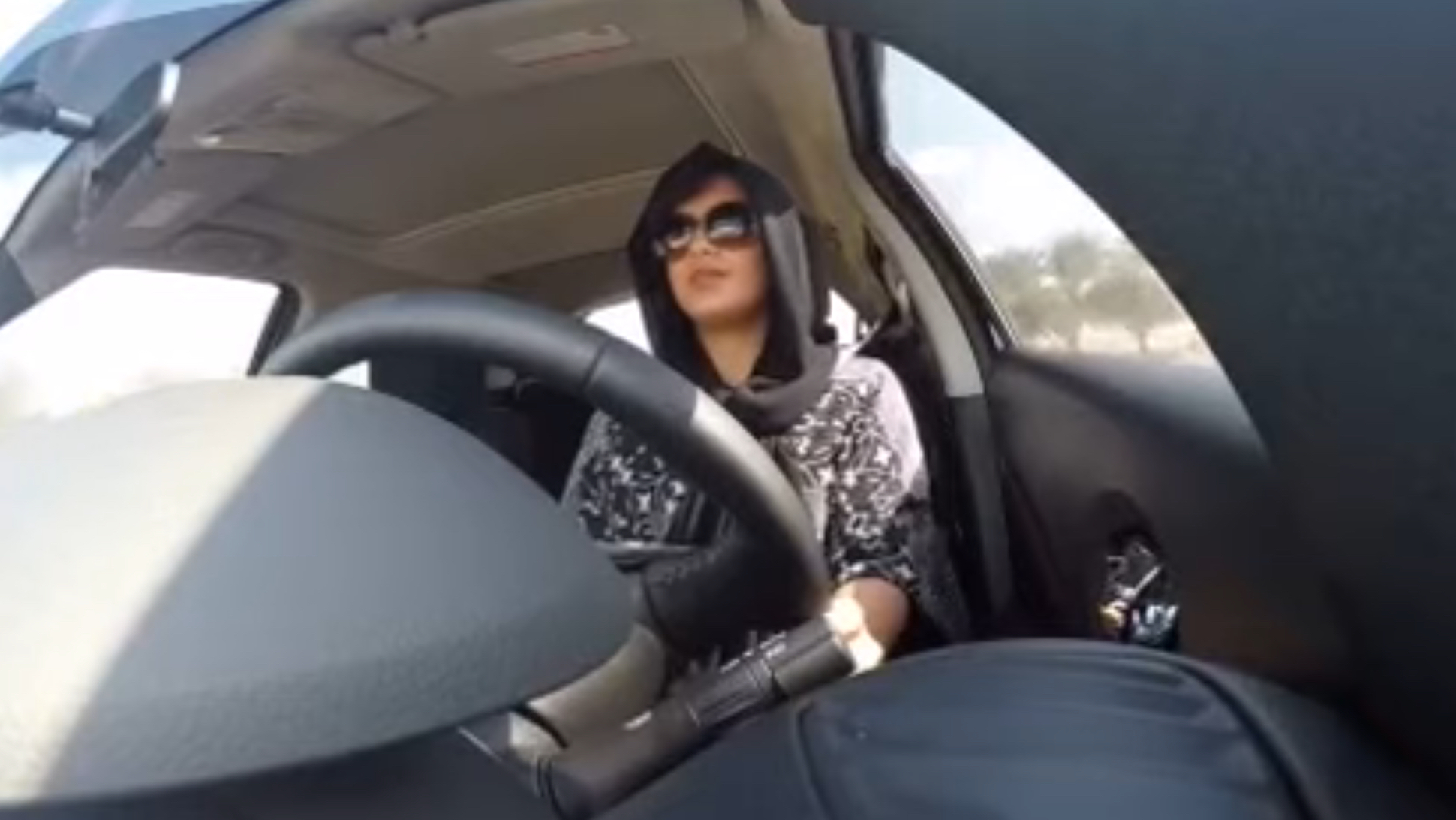

A Saudi Arabian judge sentenced women’s rights activist Loujain al-Hathloul to five years and eight months in prison on Monday, the New York Times reports. Al-Hathloul was arrested alongside at least 10 other activists in May 2018 over protests against the country’s ban on women driving. Saudi Arabia lifted the ban in June 2018, but has pursued its charges against al-Hathloul anyway in a special terrorism court.
Al-Hathloul was charged with undermining the kingdom and its political system through her work advocating for Saudi women’s rights. She spoke out against the kingdom’s repressive policies to human rights organizations, journalists and foreign diplomats. Because of this, Saudi state media accused her of treason.

“My sister is not a terrorist, she is an activist,” said her sister Lina al-Hathloul, said in a statement quoted by the New York Times. “To be sentenced for her activism for the very reforms that [Saudi Crown Prince Mohammed bin Salman] and the Saudi kingdom so proudly tout is the ultimate hypocrisy.”
At the time of her 2018 arrest, al-Hathloul was studying in the United Arab Emirates. Security forces arrested her in the UAE and brought her back to Saudi Arabia, the New York Times reports.
Al-Hathloul had previously been detained for 70 days in 2014 after she tried driving her car from Saudi Arabia into the UAE. She filmed herself driving, and in that video, she said that she had a UAE driver’s license.

The Saudi judge who sentenced al-Hathloul credited the time she has already served and suspended two years and 10 months of her sentence, meaning that she could be released in as little as two months, her family told the New York Times. Prosecutors had fought for the 20-year maximum sentence in the trial, but even though her sentence is much shorter, the absurdity of being jailed for fighting for a right women were granted shortly after her arrest remains.
While in jail, Al-Hathloul says that she and other inmates have experienced sexual harassment, torture and solitary confinement. The Saudi government cleared itself of wrongdoing through an investigation into al-Hathloul’s allegations of torture, which her family maintains is a cover-up. A judge rejected al-Hathloul’s complaint about the torture last week. She had been on a hunger strike for two weeks to protest her treatment in prison as well as the restrictions against family visits.
After her release, al-Hathloul will remain on probation for three years and will be barred from traveling outside Saudi Arabia for five years.
Saudi officials deny that al-Hathloul’s sentence is connected to her activism, claiming instead that she worked with hostile foreign entities and provided them with classified information. That doesn’t pass the sniff test, as her family told the New York Times that the counts against her don’t just include speaking with foreign journalists, human rights groups and diplomats, but also include trying to apply for a job at the United Nations (of which Saudi Arabia is a member), demanding women’s rights, and advocating for the end of Saudi Arabia’s guardianship system (wherein male family members have an immense amount of control over a woman’s life). Her charges also included “advocating for change” as well as “using the internet to harm public order,” explained CBC News.
The original indictment also included references to Britain, the Netherlands and the European Union as enemy states whose diplomats and journalists Loujain al-Hathloul interacted with, which Lina al-Hathloul confirmed on Twitter had been quietly dropped during the course of trial.
With al-Hathloul’s sentencing, it’s obvious that Saudi Arabia doesn’t actually care about expanding women’s rights. This is the country that murdered a dissident journalist in October 2018, shortly after that driving ban was lifted. Tossing the populace a few extra rights is just a means to an end. Punishing anyone who dares question the Saudi authorities is all about maintaining control.
Salman’s regime has used baby steps towards basic human rights such as lifting the ban on women driving and encouraging more women to work to gloss their over other abuses. This window dressing of “doing better” is then used to attract foreign events, interest and investment that further legitimize the country and its leadership on the international stage.
The automotive world unfortunately played right along, with the Dakar Rally, Formula E and Formula 1 all moving events to Saudi Arabia in recent years. If the likes of Formula 1 actually believed that “we race as one,” they’d skip the country that routinely jails its own citizens who fight for fair treatment and basic rights—including rights they’ve recently been granted. Some things should be worth more than money.
Got a tip? Send us a note: tips@thedrive.com